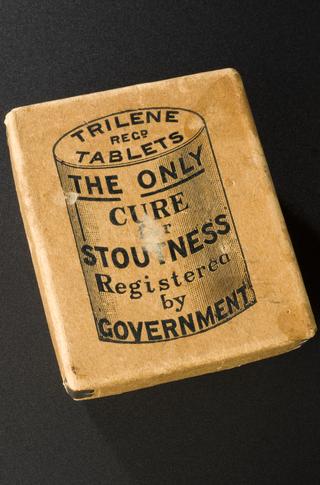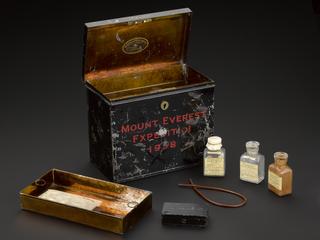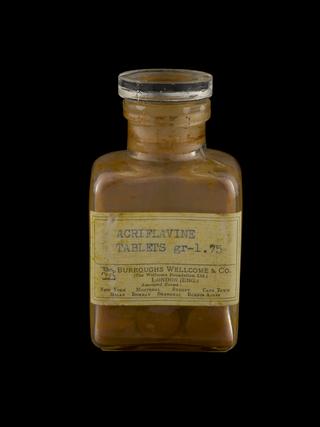
Palliate clinical training pack
- Made:
- 2020 in London and United Kingdom
- maker:
- Becton-Dickinson UK Limited






























Palliate clinical training pack for lay/informal carers give subcutaneous injections, to help with symptoms common in the last days of a person’s life (pain, nausea, restlessness, noisy breathing and breathlessness), consisting of a needle-less closed subcutaneous catheter (saf-T-Intima) inserted into a stoma like adhesive dressing, selection of luer-lock syringes, glass and plastic ampoules containing water and saline solution, blunt drawing up needles, alcohol wipes and a plastic box and lid, adapted from the CARiAD study led by University of Bangor, developed by the Helix Centre working with Central North West London NHS Trust, 2020
Set up in 2014 as a joint venture between Imperial College and the Royal College of Art, The Helix Centre, aims is to achieve high quality care for all, worldwide and at scale with people at the heart of their work. Since 2019, The Helix Centre team including palliative care clinical nurse specialist Imogen Eastwood have been looking into end-of-life care with people’s wishes in mind.
At the start of the COVID-19 pandemic, The Helix Centre developed guidance, advice, training and a toolkit for NHS Central and North West London NHS Foundation Trust for lay carer administration of certain medicines to support patients wanting to die in their own homes. They were supported by the CARiAD research team from the University of Bangor who used their three-year research study to develop a national policy for Wales in seven days. Lay carer administration was already legal in the United Kingdom, prior to the pandemic. Training lay carers to administer medication reduces the time patients have to wait for this to be administered by visiting health care professionals. Symptoms can worsen if not treated quickly. By enabling lay carers to respond quickly to their loved one’s symptoms, patients may die more comfortably in their preferred place.
Suitable, risk assessed and willing lay carers of patients choosing to die at home are trained to recognise common symptoms that occur at end of life. These include breathlessness, pain, nausea and vomiting, anxiety, agitation and restlessness. These are symptoms that are not completely controlled by a person’s regular medication. Carers are trained how to access and recognise symptoms, give medications, how to record them and how to contact a healthcare professional if additional assistance is needed. Carers are under no obligation to keep giving medicines under the Palliate programme and can withdraw from the agreement at any time. Carers are also supported after the patient has died.
The Helix Team are in the process of developing an app version for so carers to access information and record administration digitally. A National Community of Practice run by palliative care specialists Marlise Poolman and Imogen Eastwood shares risk assessments, governance, training, and guidance to those looking at applying lay carer administration in their local health areas.
Details
- Category:
- Materia Medica & Pharmacology
- Object Number:
- 2023-96
- Measurements:
-
overall: 50 mm x 170 mm x 115 mm,
- type:
- training pack

